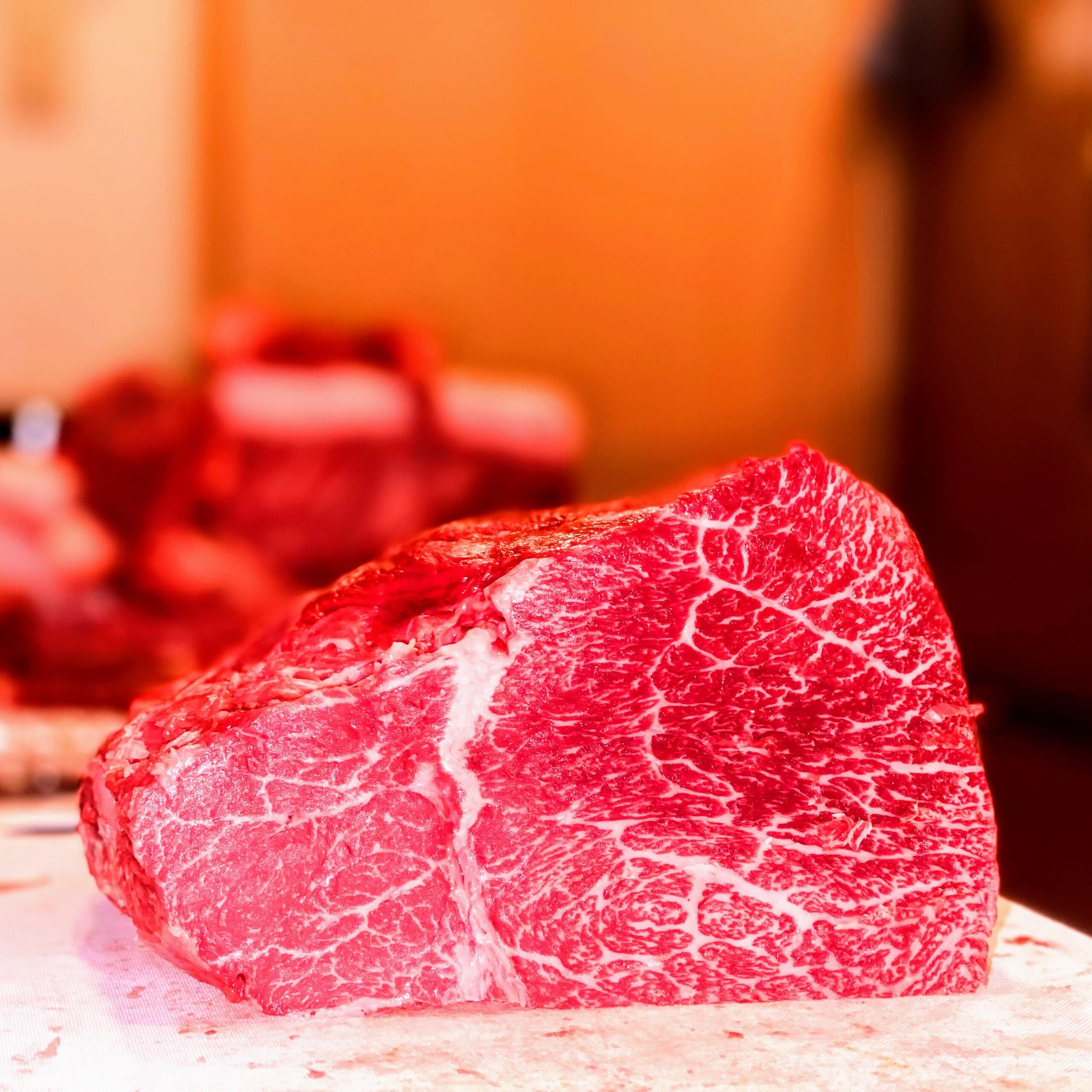Previously, we published an article titled “What Makes Wagyu Special? – What is True Wagyu?” where we delved into the unique qualities of Wagyu beef.
But how can you verify whether the beef is authentic Wagyu, and more importantly, whether it meets Halal standards?
In this article, we’ll introduce some reliable methods to confirm these points.
目次
- Step 1: Prepare the Wagyu Identification Number
- Step 2: Use the Official Wagyu Individual Identification Website
- Step 3: Enter the Identification Number
- Step 4: Review the Results
- Step 5: Verifying Halal Certification
- Conclusion: Traceability and Reliability
- Final Tip
- Tempura Asakusa SAKURA Basic information
Step 1: Prepare the Wagyu Identification Number
The Wagyu Identification Number is a unique 10-digit code assigned to each Wagyu cow.
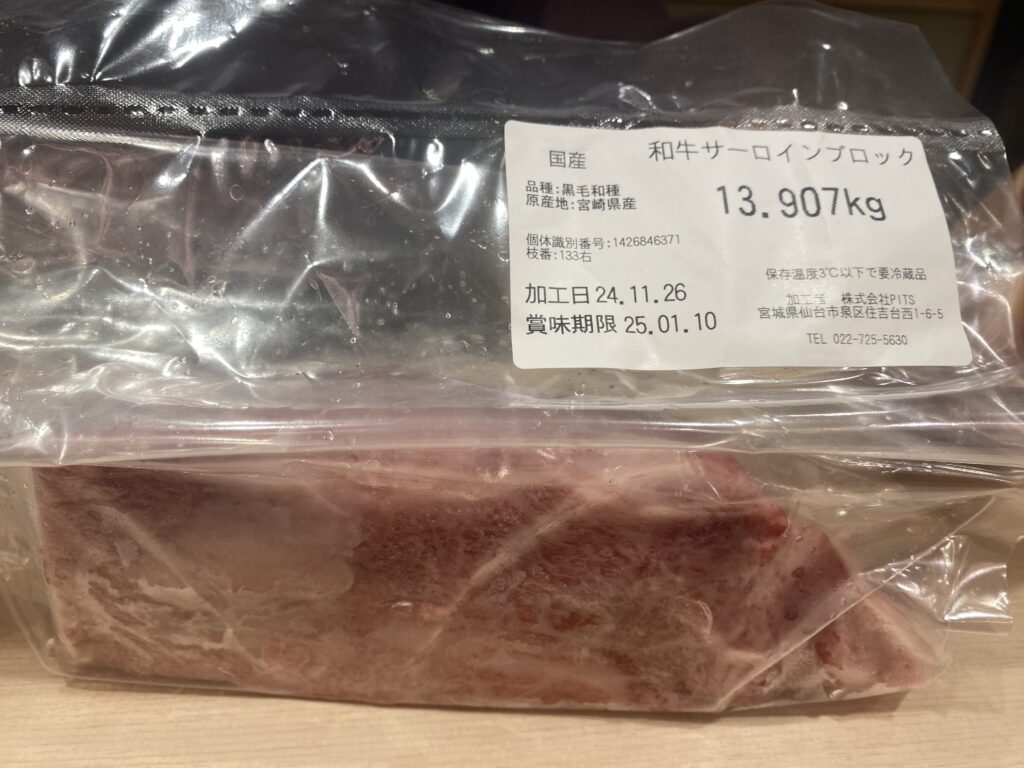
You can find this number on the beef label, certification documents, or information provided by the seller.
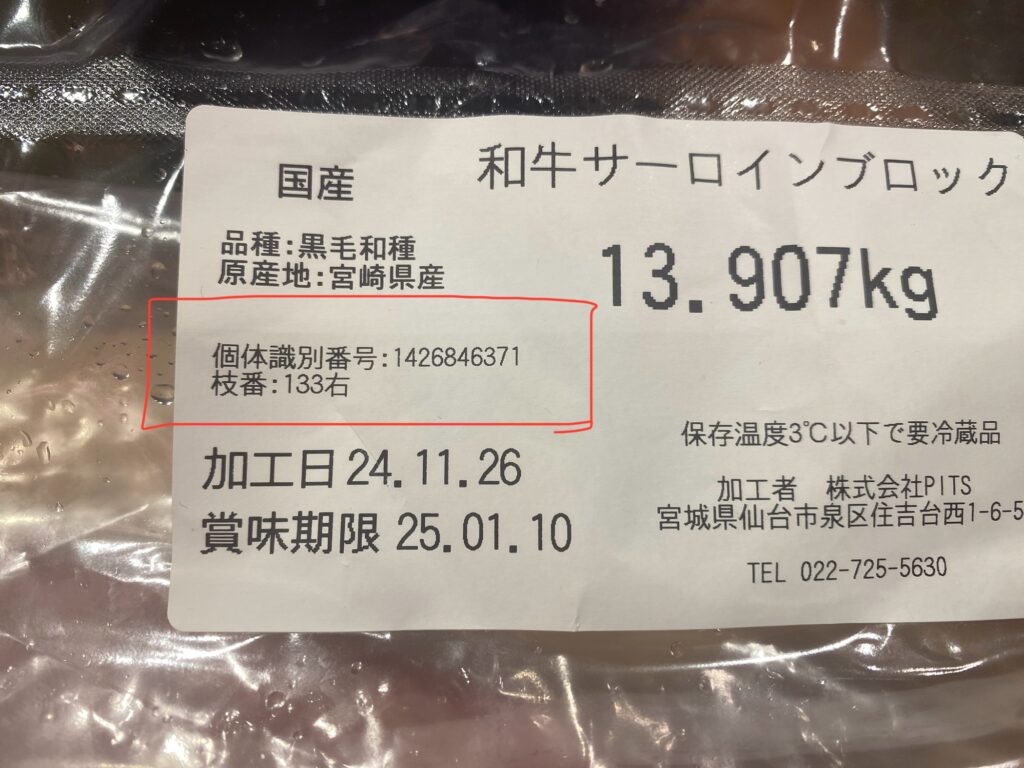
Here’s an example of Wagyu we use for tempura at Tempura Asakusa SAKURA. Each block of Wagyu comes with its identification number.
Step 2: Use the Official Wagyu Individual Identification Website
The next step is to access the official website of the National Livestock Breeding Center.
You can use their Wagyu Individual Identification Information Search Service to verify the details.
Website URL: http://www.id.nlbc.go.jp/
Step 3: Enter the Identification Number
Let’s walk through an example using the Wagyu we serve at Tempura Asakusa SAKURA:
- Go to the search form on the homepage.
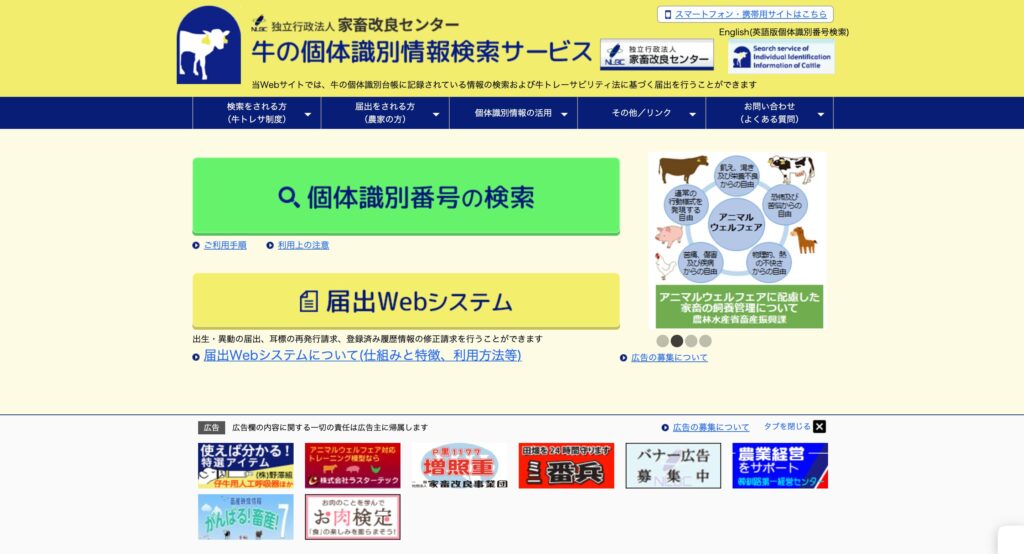
- Enter the 10-digit identification number.
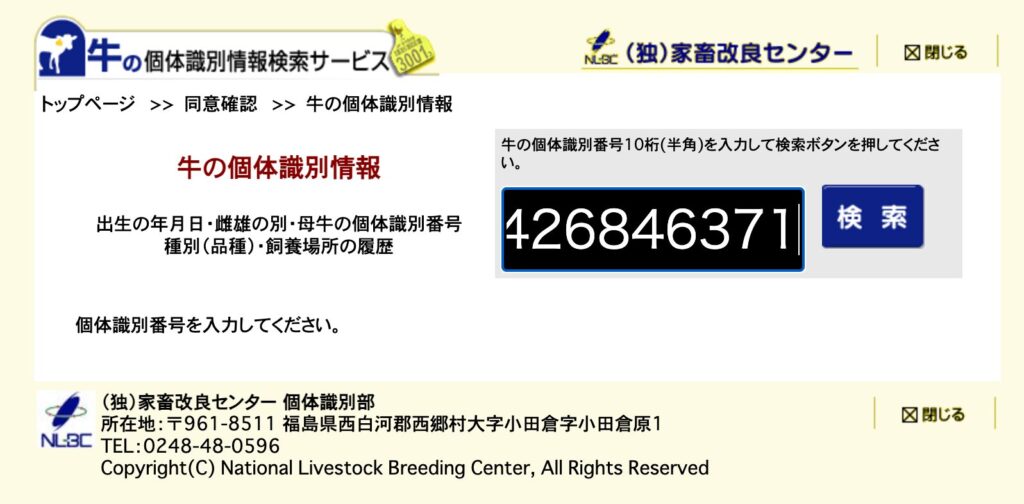
Screenshot
- Click the search button.
Step 4: Review the Results
The results provide detailed information, including:
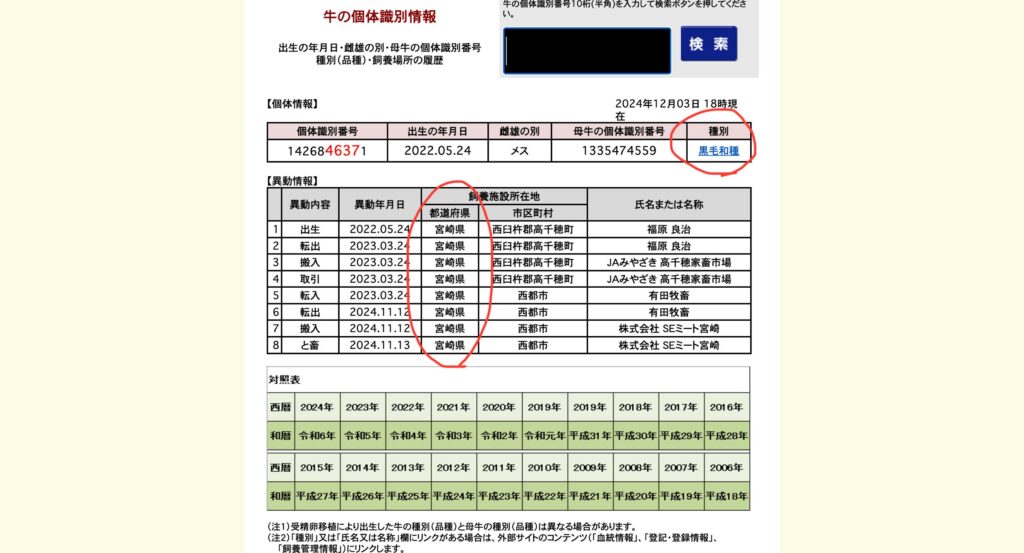
- Breed: In this case, the beef is “Kuroge Wagyu” (Japanese 黒毛和牛).
- Origin: All stages from birth to slaughter were conducted in Miyazaki Prefecture(Japanese 宮崎県).
You’ll also see additional details such as:
- Farm location (production area)
- Birthdate
- Gender
- Breed type
- Parent cows’ identification numbers
- Shipping and slaughterhouse details
- Producer name or organization
Step 5: Verifying Halal Certification
In Japan, Halal-certified facilities ensure Wagyu beef meets Islamic dietary laws. Below are some key certified facilities:
- SE Meat Miyazaki (Miyazaki Prefecture)
- Began operations in February 2024 as the first Halal-certified beef processing facility in Miyazaki Prefecture.
- Honjo Meat Center Cooperative (Saitama Prefecture)
- The first in Japan to be Halal-certified by the UAE government, performing Halal processing every Wednesday.
- Zenkai Meat (Kumamoto Prefecture)
- Processes Wagyu raised in Amakusa City for Halal food production.
- Nishi Awa Beef Co., Ltd. (Tokushima Prefecture)
- Halal-certified since 2016, exporting to Malaysia and Indonesia.
- Sanda Meat Center (Hyogo Prefecture)
- Produces Halal Wagyu for export to Saudi Arabia and Malaysia.
From the above, it is clear that the Wagyu used at Tempura Asakusa SAKURA this time is Miyazaki beef, which has been slaughtered under Halal certification by SE Meat Miyazaki. (Incidentally, Tempura Asakusa SAKURA handles various breeds of Wagyu to ensure the highest quality is offered at any given time. It is always confirmed that the Wagyu meets Halal standards as well.)
Conclusion: Traceability and Reliability
By combining identification numbers and Halal certification, you can ensure the origin and quality of Wagyu beef. This information is not only useful for consumers but also helps restaurants provide transparency to their guests.
Final Tip
If needed, you can request additional details directly from sellers or producers. Wagyu traceability is legally mandated in Japan, ensuring the authenticity and trustworthiness of the information.
We hope this guide helps you enjoy high-quality Wagyu with peace of mind, knowing its origin and adherence to Halal standards!
Enjoy your Wagyu experience!

